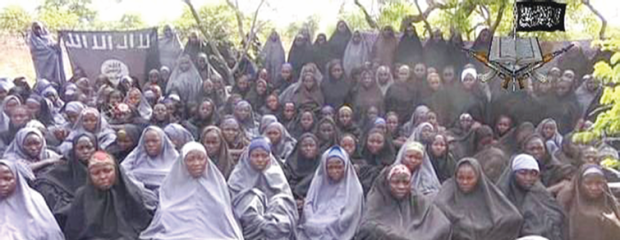Robert Mugabe: the Great Survivor wins again – By Richard Dowden

 I knew from the moment that President Robert Mugabe said he would step down from the presidency of Zimbabwe if he lost the election that he knew he would win it. If he had not been certain of winning, he would not have called the election. Power – military, political, bureaucratic – is what he understands, loves and has enjoyed for 33 years. It’s more than love – it’s an addiction. Other African presidents try to cajole him. He charms and patronises them. British Prime Ministers and American presidents lecture him. He swats away their words and plays the colonialist card. Opposition movements challenge him. He crushes them with violence. Then he charms them.
I knew from the moment that President Robert Mugabe said he would step down from the presidency of Zimbabwe if he lost the election that he knew he would win it. If he had not been certain of winning, he would not have called the election. Power – military, political, bureaucratic – is what he understands, loves and has enjoyed for 33 years. It’s more than love – it’s an addiction. Other African presidents try to cajole him. He charms and patronises them. British Prime Ministers and American presidents lecture him. He swats away their words and plays the colonialist card. Opposition movements challenge him. He crushes them with violence. Then he charms them.
Mugabe will leave power when he wants to – or when his body gives out.
Right now he will be exultant. He took on the internal opposition, his fellow African presidents and the western powers – and won. Yes the voting rolls were manipulated. Yes his government managed the polling stations. Yes mobile phones, that great democratic information exchanger, were shut down. Yes the vast Zimbabwean Diaspora – mostly the brightest and most ambitious – were not able to vote. Yes everyone assumed the MDC would win and so became complacent. And had the result been a 51% – 49% split, there might have been a case to challenge it. But a 61% – 33% victory is decisive. Zanu-PF also won 150 of the 210 parliamentary seats, a two thirds majority which allows it to change the constitution and amend laws. Former Nigerian President Olusegun Obasanjo, headed the African Union election observers. His key vote had imposed Commonwealth sanctions on Zimbabwe in 2003 but now he passed this election as credible and fair. Game, set and match to Robert Gabriel Mugabe.
And, I suspect, many middle class Africans throughout the continent and the world will stealthily clench a fist and whisper “yesssss” – without of course agreeing with what he has done to Zimbabwe. They would be appalled if such a man took over their own countries but Mugabe has stood up to the former colonial powers and won. It may have been a 20th century battle but many people in Africa feel that the relationship is still not one of equality: multi party democracy has been imposed, resource nationalism is blocked by a Western-controlled economic system and attitudes to Africa are still patronising and sometimes bullying.
Apart from state control and manipulation of the election process there are two other factors that might explain the scale of Mugabe’s victory. One is a mistrust of Morgan Tsvangirai. Not that people think he is a bad person, but he lacks both the leadership skills to draw Zimbabweans together into a vision of a new Zimbabwe and the political and managerial skills to make it happen. Up against a bureaucracy and, more importantly, a security system which is personally loyal to Mugabe, Tsvangirai would have stood little chance of pushing through real change.
The second factor is one I have heard expressed many times in Africa: do not upset a Big Man. If he is a Big Man and is president and wants to go on being president, then let him have it. Otherwise he will create problems. “I will vote for him because he is president”, is a phrase I have heard in many elections in Africa.
What will Mugabe do now? He may arrange for a successor. Until now he has been manipulating the rival candidates but now he needs to ensure that, if he steps aside from the day-to-day presidential chores, he and his family will be safe. But even if he allows a new president to be sworn in he will retain ultimate power as president of the party, much as Julius Nyerere did in Tanzania in 1985 when he stepped down but retained leadership of TANU.
I also suspect Mugabe will now go into reconciliation mode as he did after his first (also unpredicted) election victory of 1980 and again after he brutally crushed the Ndebele uprising in the mid 1980s. Now he will deploy his considerable charm and hold out a hand to African and western governments that have criticised him in the past. At home he may offer posts in government to MDC leaders, maybe even to Tsvangirai himself. He may not fully implement the indigenisation programme which demands that black Zimbabweans must own 51% of all foreign-owned companies, just as he failed to implement socialist policies in the 1980s after he took power. In all these moves, the only question in his mind will be: will this keep ultimate power in my hands?
Richard Dowden is Director of the Royal African Society and author of Africa: Altered States, Ordinary Miracles published by Portobello Books.






But he didn’t win, did he? It’s pretty dismal that Richard Dowden, like so many others, thinks the result shouldn’t be challenged. Continuing hell on earth for ordinary Zimbabweans.
To the previous poster: yes he did actually win, albeit a flawed election. Most elections are flawed for one reason or another, including Western ones where campaign promises are made with no intention of keeping them. This was simply more flawed.
It is not hell on earth for Zimbabweans. Indeed things have got a lot better over the last five years than they were before. Things are not good still, and things would no doubt have been better without Mugabe, but we all know that an improving economy boosts the incumbent whether the improvement is because or in spite of him.
I also don’t think Mr Dowden is stating that the election shouldn’t be challenged. Rather he is stating that it cannot effectively be challenged. Consider a tennis match where a poor line call has decided the game. The umpire has walked off the court, the audience has gone home and the lights have been switched off. The line call may still have been wrong, but there is no sense in trying to argue the case.
Noone is saying Mugabe won in a completely above board sense, but win he did.
But he did win; whether you like it or not or find it fair or not. It isn’t up to you. Is the weather nice on your planet? He won and is in power. Live with it.
Astonishingly insensitive comments in particular Peter Higgins brushing it off as a “line call”. Mugabe did not win. For starters, there were over a million expatriate Zimbabweans excluded from voting and almost none of whom would have voted for Mugabe. Yes, Tsvangirai is an incompetent and needs to go now. But, no, Mugabe didn’t win and no we should not have to “live with it”. This evil and deeply cynical eminence has consigned a generation to a life of grinding and permanent poverty and should never be allowed to rest. He has not “survived”. Rather, he has used the force of the state to continually and brutally beat his way into power.
The Lack of ‘Civitas’ in Zimbabwe which ensured that the ZEC would be compromised
Compromised–July 31 Election in Zimbabwe
When an election “is seriously compromised” [stated by several Independent Observer Groups who expressed concern in that thousands of eligible voters were disenfranchised for perhaps not supporting the status quo ] as is now becoming most apparent in the July 31/13 national election in Zimbabwe. The salient issue is: What can the International Community of Electoral Advisors do in addressing this combustive technical and public policy concern in persuading the ZEC to step up and take full civic electoral responsibility in investigating these profound allegations of electoral fraud.
The failure of young democracies [Zimbabwe, Afghanistan, Thailand, South Africa, DRC, Libya] has enormous inter-continent consequences notwithstanding that the ‘democracy idea’ eventually and ultimately will be the end state of every nation on earth. This ‘democracy idea’ remains a most powerful seductive concept [Fukuyama]. In the long run, democracy is on balance the best political system—-not because it allows citizens essential fundamental freedoms but because democracy as a normative concept enhances transparency and rule of law which in the long run will foster and encourage prescriptive ordinal citizen prosperity—the fundamental ontological essence of ‘civitas’—- essential in pluralistic dynamic flowering and flourishing of values connoting and promoting respect, peace, and good order.
[…] Source: https://africanarguments.org/2013/08/08/robert-mugabe-the-great-survivor-wins-again-%E2%80%93… […]
In Harare
Mugabe won. And would have won either way in the absence of the alleged irregularities. Morgan Tsvangirai right now is failing to come up with evidence, at least compelling enough to convince anyone, that he won. He cannot account for the 1 million more votes Robert Mugabe received. His election agents and observers, at every polling station in Zimbabwe appended their signatures to the results at every polling station, confirming them as true and accurate. He knows there was no rigging. Whilst most foreigners here argue that Mugabe couldn’t have won, probably basing on BBC, CNN, F24 etc, back home on the ground, people like cast a ballot in favor of Robert Mugabe. Morgan Tsvangirai is a looser. And the reasons are everywhere if you have been searching for them.
http://www.ocnus.net/artman2/publish/Editorial_10/The-Western-Reaction-to-the-Zimbabwe-Election.shtml
In any proper democracy, the witholding of the voters’ roll to a participant party would invalidate the result. In any proper democracy the busing in of fake voters to urban constituencies would invalidate the result. In any proper democracy the disenfranchisement of half a million eligible voters would invalidate the result. In any proper democracy the systematic jamming of social media, results bureaux and digital telephone networks would invalidate the result. In any proper democracy the ‘assisted’ voting of supposed illiterate voters would invalidate the result. In any proper democracy the resignation – powerfully articulated – of a member of the Government’s own electoral commission would precipitate intense scrutiny. A careful study of the Zimbabwean election result, constituency by constituency, reveals many examples, in previously safe MDC seats, of a ZANU-PF victory – miraculously – by a handful of voters. Winning the count doesn’t equate to winning the poll.